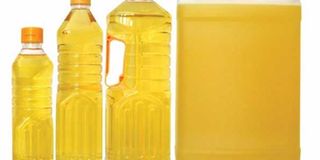New twist in raging debate on edible oil

What you need to know:
- Industries cry foul over the 35 per cent tax. They say instead of manufacturing locally, manufacturers were now shifting to importing the products from Kenya or via unofficial routes in Zanzibar, thereby defeating the good intensions for which the tax was introduced.
Dar es Salaam. Some manufacturers of edible oil in the country are unhappy with high import duty charged on semi-refined and refined edible oils, saying the measure has had some negative consequences on local factories.
In the endeavour to promote the processing of edible oil using locally grown raw materials like sunflower, palms, groundnuts, olives and maize, the government approved – through the Finance Act 2018 – a 35 per cent import duty on semi-refined and double refined edible oil for one year. It also approved a 25 per cent import duty on crude palm oil and another 25 per cent on other forms of crude edible oils.
But far from the intention, local manufacturers now say some factory owners have resorted to importing the products from Kenya through Zanzibar, thereby defeating the government’s good intentions.
In Zanzibar, importers pay $650 per tonne as opposed to $750 per tonne, which they pay when importing via Tanzania Mainland ports.
“How can you pay all those taxes when you cannot find them in Zanzibar? I think this is why people decide to go to Zanzibar. The price of edible oil is much lower but after paying all the taxes you get nothing…In fact, some of our colleagues are now importing the products from Kenya at 25 per cent tax instead of manufacturing them here,” said one prominent industrialist in the country on condition of anonymity.
“The President set a lower price with the aim of protecting local industries and the sunflower crop, but I think that will not be of any help. Cargo from Malaysia and Indonesia will pass through Zanzibar before entering Tanzania Mainland,” he lamented.
The permanent secretary in the ministry of Industry, Trade and Marketing, Prof Joseph Buchweshaija, said the government was not aware that the products were being brought into the country illegally. He noted, however, that the tax was only imposed for a period of one year so as to boost domestic manufacturing.
The chairman of Sunflower Oil Processors Association, Mr Ringo Iringo, said production was progressing well, saying the fact that there was no shortage of the product was clear testimony to the fact that everything was well.
He said his institution could not establish claims that the product was being imported into the country from Kenya via Zanzibar.
The businessman said he went to the ministry of Industry, Trade and Investment and TRA with fellow businessmen to complain about the new tax, but no one listened to them.
For his part, the chairman of owners of edible oil manufacturing industries, Mr Hussein Kamote, speaking to The Citizen on the phone, said the issue was still harming their industries while foreign traders benefited from the Tanzania edible oil market.
“Crude palm oil is still a big problem that harms our industries. In Tanzania, when we import edible oils we pay 35 per cent in taxes, Kenya (0 per cent), Uganda (10 per cent) and Rwanda (0 per cent).
On businessmen offloading edible oils in Zanzibar, Kamote said they were doing that because of affordable prices. “At the Zanzibar port one tonne of edible oil costs $650 while at the Dar port the same quantity costs $750,” he said.




